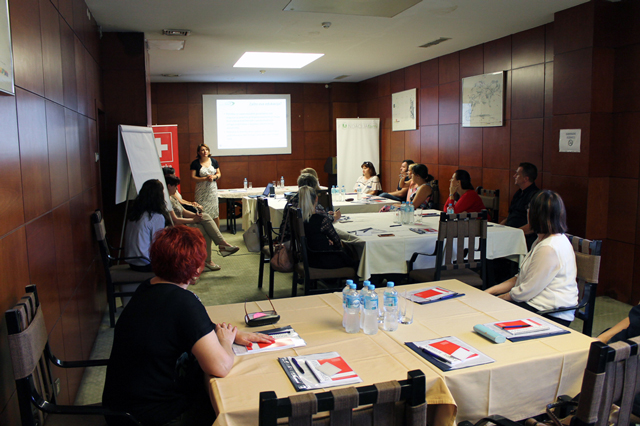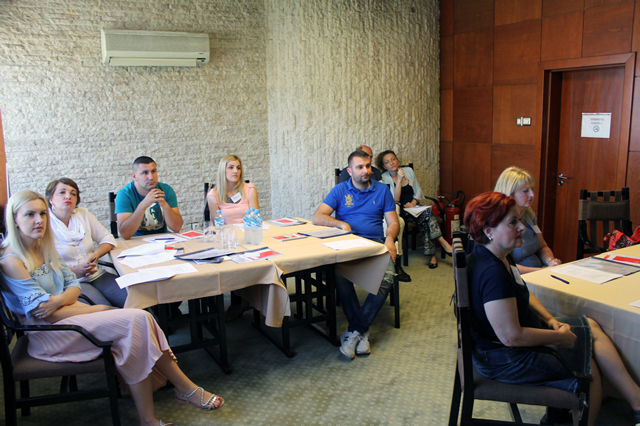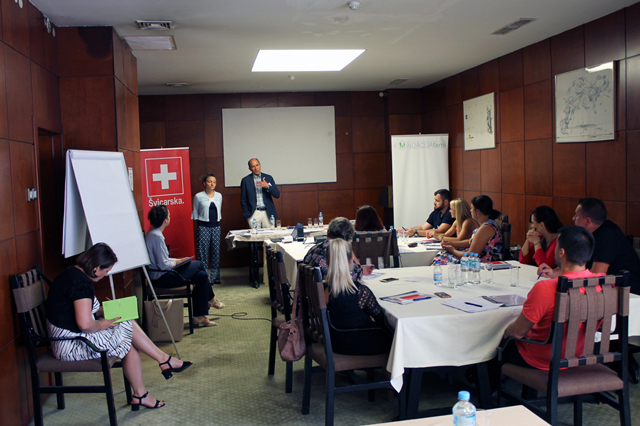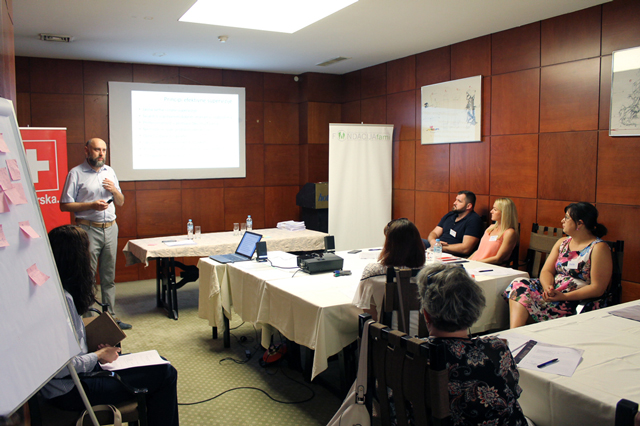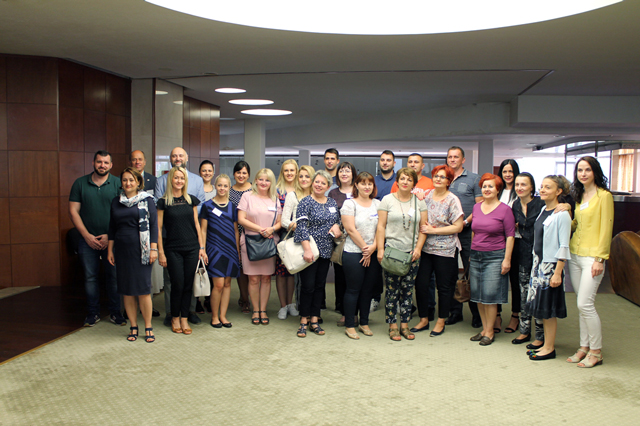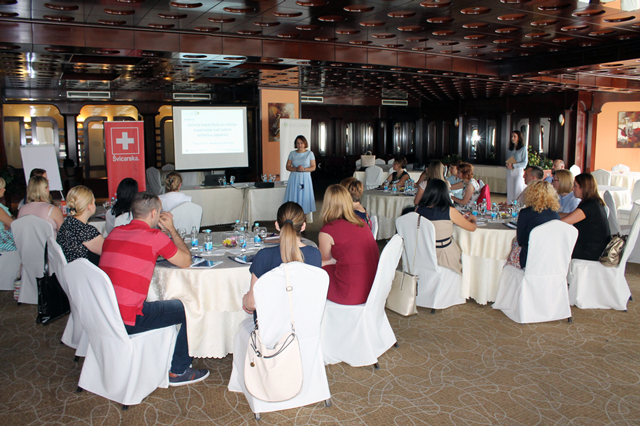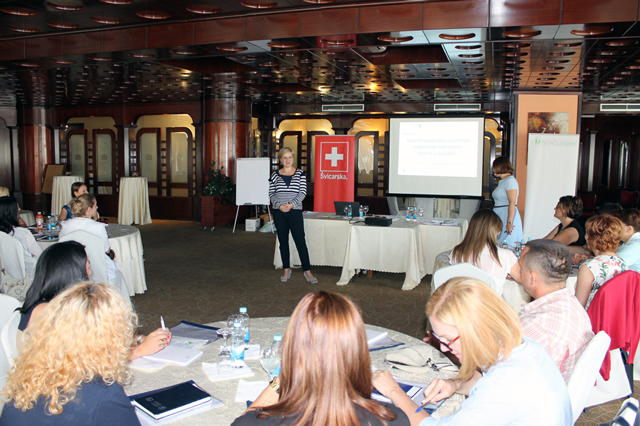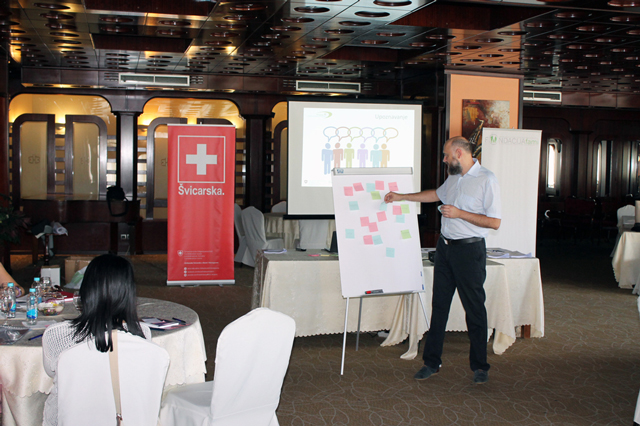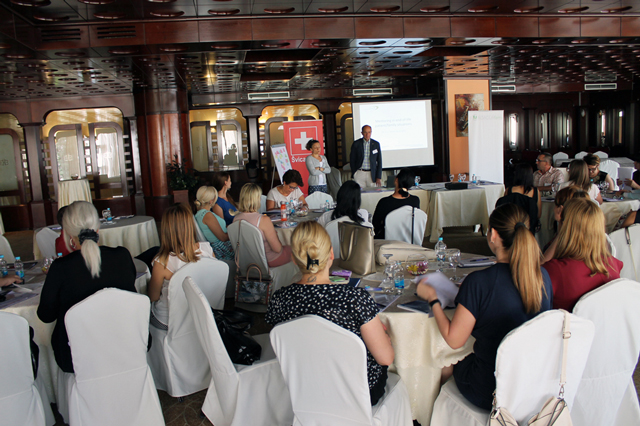Professional assistance at work, such as clinical supervision and mentorship, has invaluable significance in education and practice of community nurses. Assessing clinical work and providing feedback, helps improve the work of the supervisee/mentee and offers support in his/her professional development. A mentor represents a behavioral model, exchanges experience and knowledge with the mentee and helps him/her with the learning process at work.
Future local mentors’ network members, 36 patronage nurses from eight Primary Health Care Centers (PHCC) participated in a two-day training program for mentors/supervisors organized in Tuzla and Banja Luka in the period 16-19 July 2018. Representatives of quality departments and social workers from the same PHCCs were also present at the training. Thanks to the acquired specific knowledge and skills, they will be able to provide professional assistance to their colleagues in the coming period. The ultimate goal: a high quality health service and a satisfied patient.
During the Phase 1 of the Strengthening Nursing in BiH Project, 195 patronage nurses from 10 BIH municipalities received additional training and work equipment. Theoretical training was followed by professional assistance at workplace, i.e. mentoring, which enabled them to apply new knowledge in practice, improve service quality and extend the range of services offered. Whereas in the Phase 1 most of the mentors were international, the Phase 2 focuses on building local mentors’ capacities.
The mentor/supervisor should primarily have good communication skills as well as time, desire and motivation to pass on his/her
expertise to his/her mentee. It is vital for the supervisor him/herself to be an expert in his/her line of work and to have required level of education and years of work experience in the field.
Supervision and mentorship are beneficial to all the involved in the process: the supervisor/mentor him/herself, the health facility
and the community nurse. They help improve relationship among the colleagues in an institution, and build up on self-confidence and work satisfaction. The bottom line is that both patients and the community benefit from mentorship as health
services of higher quality, safety and wider range are available.
